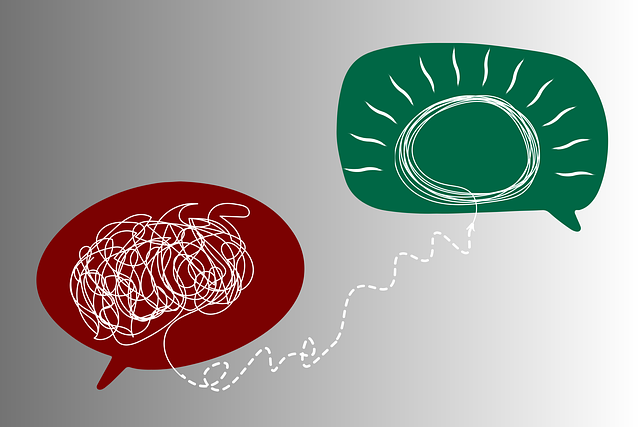In Littleton, comprehensive mental health evaluations by professionals are key to identifying and managing postpartum depression (PPD). Through evidence-based techniques like cognitive behavioral therapy (CBT) and interpersonal therapy (IPT), personalized counseling sessions, mindfulness practices, and social skills training, individuals gain coping mechanisms for PPD symptoms. Building a support system of family, friends, or groups further aids recovery, emphasizing the importance of professional help and self-care in Littleton postpartum depression therapy.
“Mental illness diagnosis and treatment navigation can be complex, especially for conditions like postpartum depression (PPD). This article provides a comprehensive guide through the process. We explore the professional assessment role in Littleton, various therapeutic options, and strategies to overcome challenges.
Key sections include ‘Understanding Mental Health Diagnoses,’ ‘The Role of Professional Assessment in Littleton for PPD,’ ‘Therapeutic Options,’ ‘Navigating Treatment Challenges,’ and ‘Success Stories: Overcoming PPD with Therapy.’ Discover how expert intervention and support systems can pave the way for recovery.”
- Understanding Mental Health Diagnoses: Unveiling the Process
- The Role of Professional Assessment in Littleton for Postpartum Depression
- Therapeutic Options: A Comprehensive Look at Treatment Approaches
- Navigating Treatment Challenges and Building Support Systems
- Success Stories: Overcoming Postpartum Depression with Therapy
Understanding Mental Health Diagnoses: Unveiling the Process

Mental health diagnoses are a crucial step toward understanding and managing one’s well-being. The process involves a comprehensive evaluation by qualified professionals who employ various tools, including in-depth conversations, psychological assessments, and sometimes medical examinations. This meticulous approach helps to unveil the unique aspects of an individual’s experience, ensuring a precise diagnosis. For instance, in Littleton, postpartum depression therapy has become increasingly recognized as a vital service for new mothers facing emotional challenges post-delivery.
Understanding the diagnostic process is empowering, fostering self-awareness exercises that can aid in early detection and, consequently, better depression prevention strategies. By navigating this journey with support, individuals can explore anxiety relief techniques and develop personalized coping mechanisms, leading to enhanced mental resilience.
The Role of Professional Assessment in Littleton for Postpartum Depression

In Littleton, professional assessment plays a pivotal role in identifying and treating postpartum depression (PPD). This process involves comprehensive evaluations conducted by mental health experts who employ evidence-based techniques to gauge an individual’s emotional state and overall well-being. The initial step often includes a thorough review of symptoms, medical history, and personal circumstances specific to motherhood, which helps tailor the subsequent treatment plan. Mental health professionals in Littleton utilize advanced risk assessment tools to accurately diagnose PPD, ensuring timely intervention.
Through skilled counseling sessions, Littleton postpartum depression therapy focuses on emotional well-being promotion techniques that empower mothers. Therapists employ empathy building strategies, fostering a safe and supportive environment where individuals feel heard and understood. By integrating evidence-based practices with personalized care, these professionals not only alleviate symptoms but also enhance coping mechanisms, ultimately improving the quality of life for those navigating PPD.
Therapeutic Options: A Comprehensive Look at Treatment Approaches

Mental illness diagnosis opens doors to a variety of therapeutic options designed to alleviate symptoms and improve quality of life. For individuals experiencing postpartum depression in Littleton, for instance, there are numerous evidence-based approaches available. Psychotherapy, including cognitive behavioral therapy (CBT) and interpersonal therapy (IPT), is often the first line of treatment. CBT helps patients identify and challenge negative thought patterns, while IPT focuses on improving relationships and social skills, both crucial components in managing postpartum depression.
In addition to these, stress reduction methods such as mindfulness meditation, yoga, and deep breathing exercises have shown promise in alleviating symptoms. Social Skills Training can also be beneficial, teaching individuals coping strategies for interacting with others and enhancing their support network. Positive thinking interventions, like reframing negative thoughts and practicing gratitude, can contribute to a more optimistic outlook and overall mental well-being.
Navigating Treatment Challenges and Building Support Systems

Navigating treatment for mental health conditions, especially postpartum depression in Littleton, can be a complex and challenging journey. Many individuals struggle to find the right support and resources, often feeling isolated and overwhelmed. Building a robust support system is a critical step towards successful recovery. This involves seeking professional help from therapists or counselors who specialize in postpartum depression therapy, ensuring they have the expertise to guide patients through evidence-based treatments like cognitive-behavioral therapy (CBT) or interpersonal psychotherapy (IPT).
Furthermore, cultivating coping skills development and self-care practices is essential to managing symptoms effectively. Stress reduction methods, such as mindfulness meditation or yoga, can provide valuable tools for individuals to navigate their mental health challenges. By integrating these practices into daily routines, one can enhance overall well-being and foster resilience. Building a strong support network of family, friends, or support groups allows individuals to share experiences, gain perspective, and offer encouragement throughout the treatment process.
Success Stories: Overcoming Postpartum Depression with Therapy

Many individuals in Littleton struggle with postpartum depression, a condition that can significantly impact their mental wellness and overall mood management. However, hope is within reach through specialized therapy services. One such success story involves Sarah, who sought help after battling severe postpartum depression following her first child’s birth. With the guidance of an experienced therapist, she embarked on a journey towards recovery.
Through regular therapy sessions, Sarah learned coping mechanisms to manage her symptoms and gradually regained control over her life. The therapy focused on identifying triggers, processing emotions, and building resilience. Over time, she developed effective strategies for depression prevention and improved her mental wellness. Today, Sarah is an advocate for seeking Littleton postpartum depression therapy, inspiring others to take that dive into healing and reclaim their happiness and peace of mind.
Mental illness diagnosis and treatment can be complex, but navigating these challenges is essential for recovery. As discussed, understanding the process of mental health diagnoses and exploring therapeutic options like Littleton postpartum depression therapy offers hope and healing. Building support systems and overcoming treatment challenges are crucial steps towards a brighter future. Remember that seeking professional help is a sign of strength, and with the right assistance, recovery is achievable.














